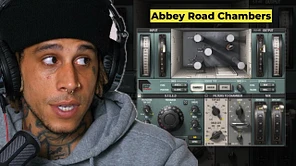🖥️ Vocal Recording Templates: https://indieleverage.com/templates
In today's music industry, artists have more options than ever for recording their music. One of the biggest decisions they face is whether to invest in a home studio or pay for time at a professional one. In this video, we break down the six pros and six cons of having a home studio to help artists make the right choice for their career.
The Six Pros of a Home Studio
1. Unbeatable Creative Freedom A home studio allows you to record whenever inspiration strikes [01:05]. You do not have to wait for a professional studio to be available, which can help you capture your ideas in the moment.
2. No Time Limits When you are paying by the hour, you are always racing against the clock. In a home studio, you can take all the time you need to make sure every single detail is perfect. This allows you to focus on quality, not just efficiency [02:38].
3. More Music, More Often A home studio helps you produce a higher quantity of music without the added costs of a professional studio. The more music you release, the more opportunities you have to find new fans [02:57].
4. Total Quality Control No one cares about your music as much as you do. A home studio gives you the chance to obsess over your mix and make sure it sounds exactly how you want it to [03:59].
5. A Long-Term Investment The upfront cost of a home studio can seem high, but it can save you a lot of money over time. Paying by the hour at a professional studio can quickly add up [04:11].
6. Complete Flexibility A home studio gives you the flexibility to create different versions of your songs, like a clean version for radio or a show version for live performances, without any extra costs [05:48].
The Six Cons of a Home Studio
1. Lack of a Dedicated Space Finding a quiet, dedicated space can be a challenge, especially if you live with others [06:42]. This can make it hard to get the clear, professional sound you want.
2. No "Vibe" A professional studio is built to make you feel inspired. It can take a lot of work to create the same kind of vibe and atmosphere at home [07:26].
3. The Initial Investment While a home studio saves you money in the long run, the initial cost of equipment can be a barrier to entry [08:14].
4. The Steep Learning Curve If you have no experience with mixing and engineering, there is a lot to learn. This can be discouraging and take a lot of time away from making music [09:06].
5. Lack of Helpful Input When you work with a professional engineer, you get the benefit of their experience and creative feedback. You might miss out on this valuable input when working alone [12:35].
6. Not for Everyone Some artists simply have no interest in the technical side of recording. If you prefer to just focus on the creative side, a home studio might not be for you [13:12].
Summary
The decision between a home studio and a professional one depends on your goals as an artist. A home studio offers more creative control and can save you money over time, but it also comes with a learning curve and can be a lot of work.











